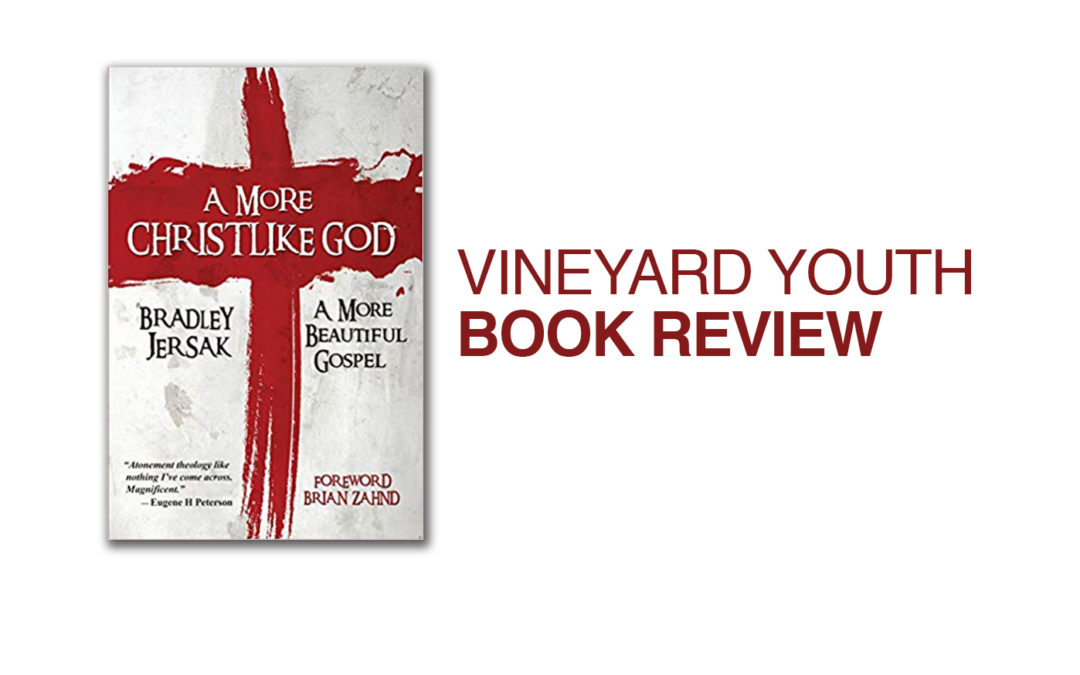If I was to pick one book that has impacted my ideas of who God is, it would be A More Christlike God, by Bradley Jersak. My thoughts on the book can be summed up by examining the thesis of this book, what is God really like? The author does an amazing job at breaking down false images of God the Father. One of the strongest supporting parts of this answer is that Jesus is the exact representation of the Father. If we can truly understand what God is like we can truly understand his purpose in creation. More importantly (to our individualistic society) we can know where we fit into this crazy thing called life.
The New Testament writers are clear when representing Jesus. They show through their writings not only Jesus’ love, but His mercy, grace, forgiveness, power, compassion, and much more. I have never really self examined my thoughts on if I believed these attributes are true about the Father as well. I guess I would say yes, I do believe they are true, but the other things that go with my self examination of God the “Father” are also judgment, condemnation, holiness, vengeance, anger, wrath, and many more negative adjectives. After reading the book, I had a moment of clarity. That moment feels, in this case, that I should have known this all along. Jesus is the exact representation of the Father. It seems obvious with passages like John 10:30, “I and the Father are one” and John 1:1-5 the word was God and He (Jesus) was with God even from the beginning. Nothing has been made without Jesus being a part of it. It makes perfect sense that Jesus and the Father are one, therefore the attributes we see in Jesus we also see in the Father. The way Jesus responds to humanity, with absolute love, the Father also responds to humanity with absolute love. The author states God is fully revealed in Jesus.
Another aspect of the book that caught my attention is the concept of God is in charge but not in control and Jesus rules through consent not coercion. This thought is nicely woven throughout the book. In my opinion it is a new, and I might add improved, way of saying free will. Jersak does a good job explaining how something as evil as rape was never intended for good and never planned by God. In other words, would the Jesus of the New Testament ever plan rape to happen? Would this same Jesus plan rape as a way to better that person? Gosh no! Here is where the overall thesis helps out. God the Father would never plan or want rape to happen either. This is the overall concept behind God/Jesus is in charge, but not in control. He does not force us to consent to his ways; therefore humanity has chosen to go their own way. Unfortunately, rape is a byproduct of that choice; the choice to do life on our own terms. One might ask how God/Jesus could let that happen. The author makes his thesis clear, Jesus didn’t let any tragedy happen. Jesus would never want tragic things to happen, He would never throw calamity at you to teach you a lesson. Here is that connection again, Jesus is exactly like God the Father, neither of them would want or wish calamity on any of us.
The author tells a story about a king who sees the perfect bride for his son. He then goes and offers a relationship via marriage, but there is a catch, he gives a dead line. If she doesn’t accept the proposal by the deadline she can never have relationship. He then makes two brilliant points concerning how we represent the gospel message. One, because of grace he will never force you to come into relationship. You always will have to give your consent. Two, his consent will never end. Forcing you to make a choice would violate your consent. Bottom line, you cannot ever escape his love for you. It is eternal and never ending, it goes as far as the east is from the west. Psalm 139 is super clear, where can you go to escape the pursuing love of God—nowhere!
In A More Christlike God, Jersak is asking and then answering the question, “What is God really like?” This seems like an easy enough question to answer but, as we pull off the layers like an onion, it is easy to see where misinterpreted scripture and thousands of years have clouded the ability to properly answer this question. The three main ideas that helped me answer this question are first, Jesus and the Father are the same. Second, the idea that God is in charge but not in control. The third is God’s love is eternal and he gives us eternity to give consent. These three concepts while basic have had a deeper revelation for me. They have really struck my core, they have removed misinterpretation from my own hand and by others hands. These concepts bring a deeper sense of understanding and freedom; understanding of a God that is vast and big with a freedom to be whom he has designed me to be.
- Sharpening the Saw: Starting the Right Away - November 5, 2019
- A More Christlike God - September 5, 2019
- Three ways to gauge your spiritual health - April 29, 2019


Hi Dave,
I was thinking about buying this book but after reading the excerpt of it on Amazon I have questions. I don’t want to buy it if he doesn’t deal with examples of God’s wrath, anger, etc. in the Old Testament and the tribulation period in Revelation. Also, he mentions the attack on the Israelites In Numbers 21 and how God healed them but he leaves out that God sent the snakes. Just those thoughts make me question buying the book is a good idea. Thanks, Dave.